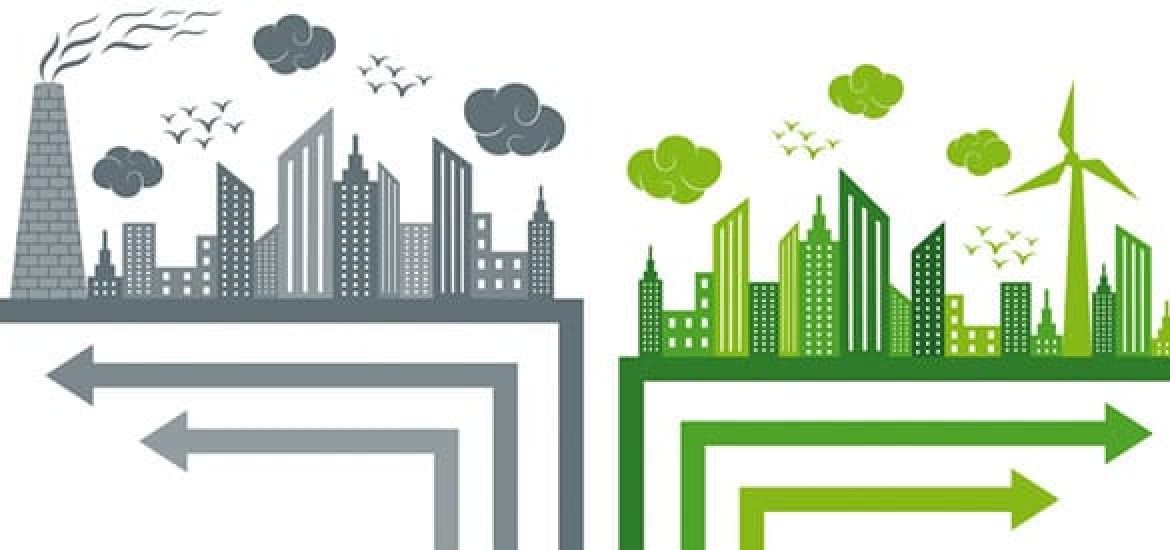
European Scientist interviews Philippe Charlez, who explained why nationalism is an obstacle to energy transition.
European Scientist: You suggest that energy transition depends on a stable foundation on the three main pillars of sustainable development.
Philippe Charlez: Sustainable development was created at the end of the 1980s, as a result of the UN Brundtland report. It is based on three complementary but not interchangeable pillars: the economy, the environment, and social equity. Its goal is to find a way of working that “meets the needs of the present without compromising the ability of future generations to meet their own needs ”
Energy transition clearly falls within the scope of this objective. It also has three fundamental pillars which can be mapped onto those of sustainable development: climate change is environmental, corporate competitiveness is economic, and finally, energy security is a societal issue. Patrick Pouyanné, CEO of Total, often reminds us that energy should be ” clean, affordable and reliable”.
ES: Why is nationalism the main obstacle to achieving this goal?
PC: Of the three pillars I mentioned just now, you will have noticed that there is one which is global – that’s the climate – and two which are fundamentally national – energy security and corporate competitiveness. The more nationalist a country’s policy, the more it will tend to privilege security and competitiveness at the expense of the climate.
There are plenty of examples to illustrate this. So, when Donald Trump withdrew from the COP21 Paris accord and stated that “energy transition does not benefit American energy security, or American companies and still less the American taxpayer ” he provided a perfect example of the concept.
Another example is Poland, where 90% of electricity production is generated by domestic coal from the famous Silesian mines. Poland’s current priority is not to reduce their coal consumption but to use any means necessary to avoid increasing their dependence on gas from Russia, their former “Big Brother”. The Poles remember in particular the fateful Molotov Ribbentrop pact of August 23rd, 1939 which established the “fourth partition” of Poland. Poland will not easily forget its position as vassal state to Moscow during the Cold War.
We can clearly see that the more a country bases its energy strategy on nationalist criteria (security, economics), the more it deviates from obligations towards the climate.
ES: What is the European Union’s attitude according to your theory?
PC: If it wants to accelerate its transition, the EU needs to implement a common energy policy. However, under the pretext of historic legacy issues, Member States are carrying on developing their own strategies. Coal-addicted Germany gives a token nod to the powerful environmental lobbies by withdrawing from nuclear power but then starts huge coal imports again. France, fan of the nuclear option, puts a definitive stop to hydrocarbon exploitation on its soil. Gas giant Great Britain adopts the most preferential tax system in the world to encourage the development of shale gas on its territory. Limiting our energy usage, even partially, to return to sustainable growth is not really compatible with these contradictory energy policies which are sending conflicting messages to the public. On this crucial subject Europe needs to engage in a debate which is calm, responsible, and most of all, co-ordinated, based on objective data.
Any relaunch of the European project needs first and foremost to develop round a common base, structured round projects which address both the concerns of the people and the challenges of the future world we are heading into. So, Europe seems like a natural space to launch a federal energy transition policy combining emissions reduction, corporate competitiveness, and security of supply, while putting aside national egos for a while. These are some of the overarching themes which might be able to relaunch the European project: protection of the value of the Euro against the Dollar; common rules and standards; coordination of actions between member states; energy security through interconnection of gas and electricity networks; pooling R&D on renewable sources, energy storage, and carbon capture/storage.
We therefore welcome the initiative launched by Donald Tusk, the new President of the European Council, who in May 2014, as a result of the crisis in the Ukraine, proposed the creation of a European Energy Union. Similarly, President Macron’s apparent commitment to European ideals represents a real hope for great progress. But nationalist resistance remains a real threat, in particular in the former Eastern Bloc countries, for whom any loss of sovereignty to a potential future federal Europe has painful echoes of their past submission to the former USSR.
Philippe Charlez is a graduate in Mining Engineering, Ecole Polytechnique de Mons (Belgium) and PhD in Physics from IPG Paris. He joined the oil industry in 1982 where he held several operational and management positions in France, Scotland, Angola and Kazakhstan. He is an energy expert specialising in non-conventional resources and energy transition, and the author of many articles and books on energy. He recently published “Our Energy Future Is Not Set in Stone” (2014) “Issues in Gas and Shale Oil” (2015) Editions Technip, and “Growth, Energy, Climate: Going Beyond Squaring the Circle” (2017) Editions De Boek Supérieur.
This post is also available in: FR (FR)DE (DE)